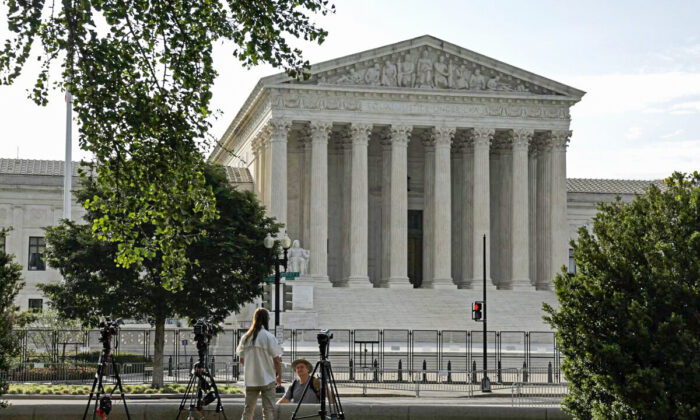A court blocked Louisiana from barring nearly all abortions despite a law that was triggered by the U.S. Supreme Court’s ruling last week that overturned Roe v. Wade.
Orleans Parish Civil District Court Judge Robin Giarrusso issued a temporary injunction on June 27 after some abortion clinics filed a lawsuit against the state, according to her order (pdf). Giarrusso scheduled a hearing for the suit on July 8 before the court makes a final ruling on whether the injunction should be upheld, meaning that abortions will remain legal in Louisiana within that time frame.
Louisiana and a dozen other states have “trigger laws” that were designed to ban or significantly restrict abortions once the Supreme Court overturned the 1973 Roe v. Wade ruling, which determined that women have a constitutional right to obtain the procedure. An analysis says that up to 26 states have laws or will pass laws to restrict the procedure, which many religious groups say is murder and immoral.
The Hope Medical Group for Women, one of Louisiana’s three abortion clinics, is one of the plaintiffs in the case. The Shreveport-based clinic is arguing that Louisiana’s three trigger law bans violate its due process rights under the state’s constitution and “lack constitutionally required safeguards to prevent arbitrary enforcement.”
The Center for Reproductive Rights, a left-wing group that filed the lawsuit on the clinic’s behalf, said abortions are now resuming in the state after Giarrusso’s order.
“A public health emergency is about to engulf the nation. As expected, Louisiana and many other states wasted no time enacting bans and eliminating abortion entirely,” Nancy Northup, president and CEO of the Center for Reproductive Rights, said in a June 27 statement.
States’ Rights
In striking down Roe, the Supreme Court gave states the authority to ban or allow abortions at any point in a pregnancy. Justice Samuel Alito, writing the 5–4 majority opinion, argued that the Constitution makes no reference to abortions and said the 1973 landmark decision, as well as the 1992 decision Planned Parenthood v. Casey—which reaffirmed Roe—were flawed from the start
“We end this opinion where we began. Abortion presents a profound moral question,” Alito wrote. “The Constitution does not prohibit the citizens of each State from regulating or prohibiting abortion. Roe and Casey arrogated that authority. We now overrule those decisions and return that authority to the people and their elected representatives.
“No such right is implicitly protected by any constitutional provision, including the one on which the defenders of Roe and Casey now chiefly rely—the Due Process Clause of the Fourteenth Amendment. That provision has been held to guarantee some rights that are not mentioned in the Constitution.”
Lousiana Attorney General Jeff Landry’s office didn’t respond to a request for comment by press time. Although he didn’t comment on the lawsuit and injunction, Landry, a Republican, praised the Supreme Court’s decision last week.
Justices Clarence Thomas, Neil Gorsuch, Brett Kavanaugh, and Amy Coney Barrett joined Alito. Chief Justice John Roberts wrote that he would have stopped short in overturning Roe, while Justices Stephen Breyer, Elena Kagan, and Sonia Sotomayor dissented.
Over the past weekend, police across the country arrested dozens of protesters and rioters, including individuals who engaged in violent activity following the court’s ruling.
Reuters contributed to this report.

